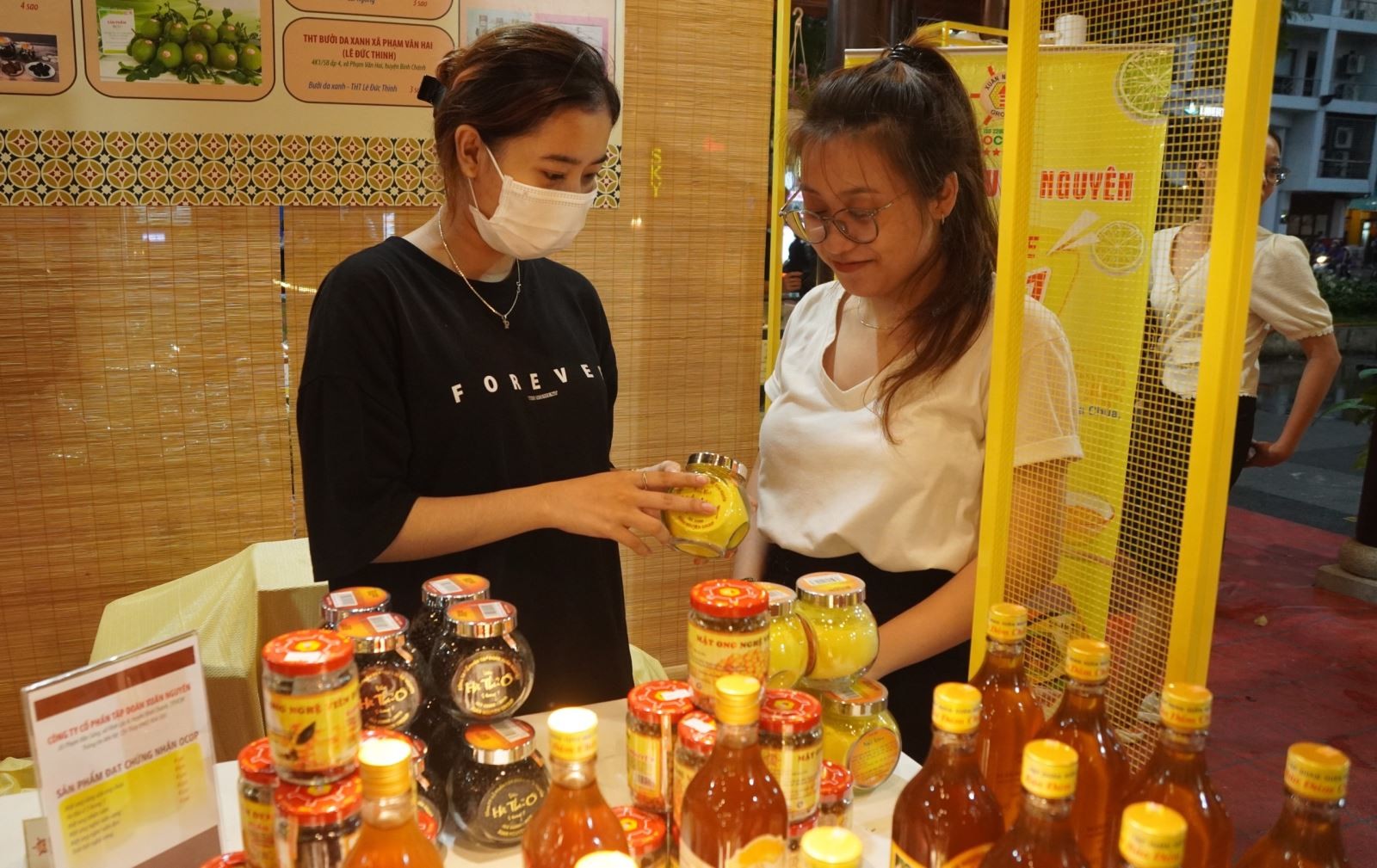
Change to avoid being passive
Before April 2025, the US was the main export market of Ca Men Foods Co., Ltd., while Canada only played the role of a secondary market with small orders serving the Vietnamese community. However, when the US market had trade barriers and stricter control policies, Ca Men Foods' leadership was forced to find new ways to maintain production and avoid supply chain disruption.
For Mr. Le Trong Don, Director of Ca Men Foods, shifting to the Canadian market is not simply a matter of "avoiding risks" but a strategic turning point. Instead of continuing to export in small amounts through overseas Vietnamese, Ca Men Foods decided to invest more systematically by joining hands with local distributors, organizing product trials, participating in food fairs and especially combining with events to promote Vietnamese culture - from traditional music, ao dai to hot porridge in the cold snow.
Mr. Le Trong Don said that there are many Vietnamese people in Canada, but to make them choose Vietnamese products among thousands of foreign products, it is impossible to rely on patriotism alone. There needs to be sincerity and a bit of identity to make them feel connected. Thanks to an emotional approach and specific strategy, in just the first half of 2025, Ca Men Foods' instant porridge products were present in 15 major supermarket chains in Toronto and Montreal, where there are the largest Vietnamese communities. Total consumption reached nearly 30,000 packages, three times higher than the whole of 2024. The company aims to reach 60,000 products in Canada this year and continue to expand to several other provinces.
According to Mr. Le Trong Don, for the cold market, consumers need convenience and nutrition. That is an opportunity for Vietnamese processed foods to assert their position if they want to shift to sustainable export in the current fiercely competitive context.
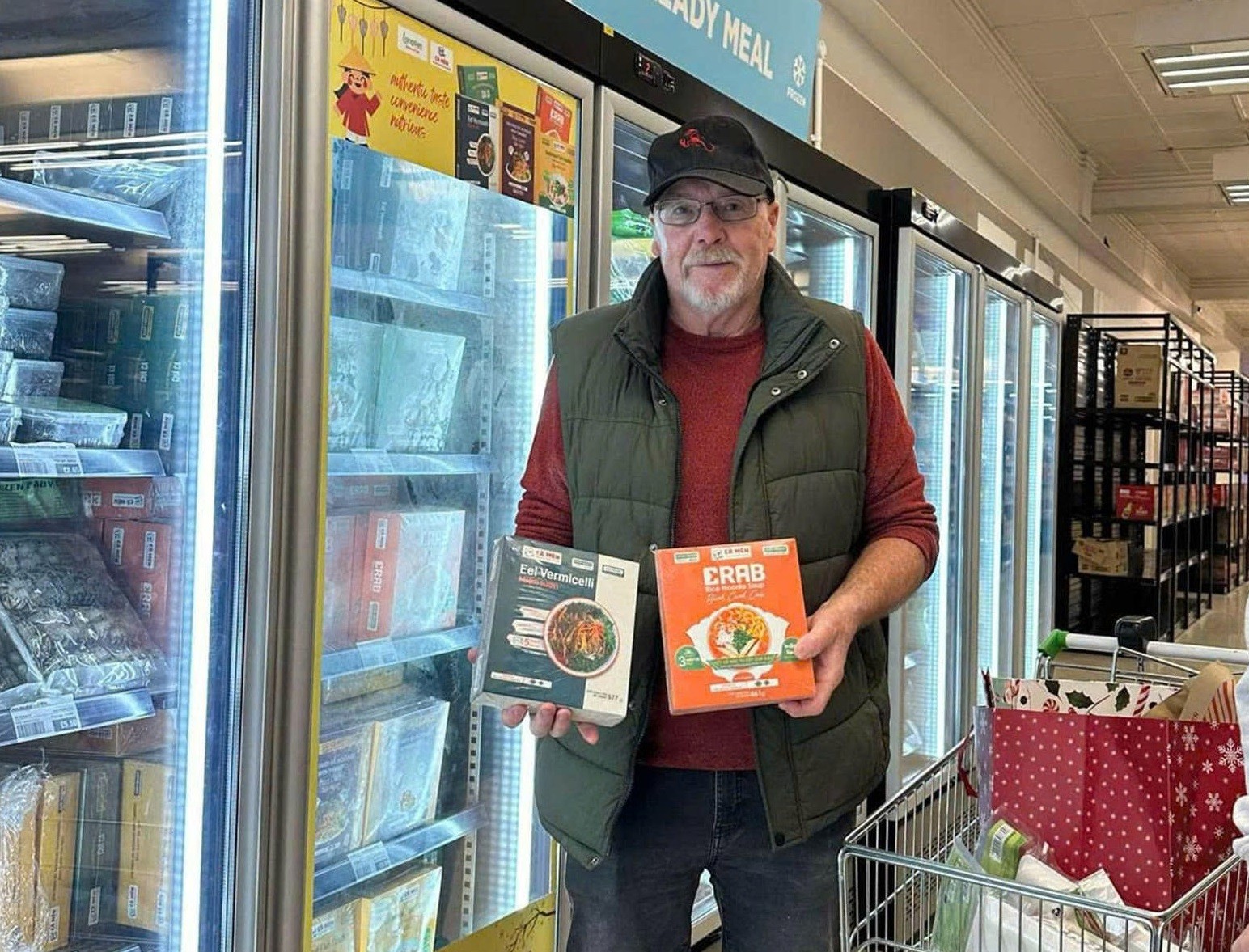
Not only Ca Men Foods, many other exporting enterprises are also forced to comprehensively adjust their market strategies to adapt to the increasing geopolitical and trade protection factors. Specifically, at Xuan Nguyen Group, a honey exporting enterprise, also faces difficulties from the anti-dumping tax rate in the US of up to 60%, plus a 20% reciprocal tax newly announced in April 2025. Facing the risk of the total tax rate reaching 80%, this enterprise immediately expanded to the EU market, increased domestic distribution and especially restructured its products in a diversified direction, from pure honey to turmeric honey pills, fresh turmeric honey...
Mr. Lu Nguyen Xuan Vu, General Director of Xuan Nguyen Group, said that in business, the company's motto is "cannot put all eggs in one basket". Because in the honey industry supply chain, if the output is blocked, it will lead to a series of risks, from not being able to consume products to stopping honey purchases from farmers. Therefore, when any market is tightened, it must immediately turn to another direction. Any product that is not suitable needs to be modified to better suit each market and customer needs. The ultimate goal is to maintain a smooth operating chain, keep farmers and keep businesses. Thanks to the initiative in business, Xuan Nguyen's revenue in the first half of 2025 increased slightly, despite the US market slowing down significantly.
Change your mindset to avoid being passive
Instead of investing heavily in new markets during the global economic slowdown, Viet Thang Jean Company Limited (Vitajean) pivoted to a comprehensive digital sales channel. According to Mr. Pham Van Viet, General Director of Vitajean, consumers today tend to look for products that are easily accessible, reasonably priced, and tailored to their individual needs. Therefore, the company decided to focus on basic, convenient, easy-to-wear products, especially those for the 18-40 age group. In addition, the company also applies flexible prices, from VND 200,000 to more than VND 1 million, helping the brand reach many different customer segments - from students to office workers.

“We personalize not only the products but also the distribution, right people, right time, right needs. Thanks to that, Vitajean's domestic revenue in the first half of 2025 increased by about 40% compared to the same period and the company expects to reach 250 billion VND for the whole year, nearly double that of 2024," Mr. Pham Van Viet added.
It can be seen that the business stories of Vitajean, Xuan Nguyen or Ca Men Foods all show one thing in common: Vietnamese businesses have been proactively transforming themselves effectively, instead of waiting for the convenience of traditional markets.
A recent survey by UOB Bank shows that 60% of Vietnamese enterprises are optimistic about their business prospects in the coming year. Notably, 46% have planned to expand their export markets, while nearly 70% intend to promote intra-ASEAN trade - a market with less risk but with steady growth. Mr. Lim Dyi Chang, Head of Corporate Banking, UOB Bank Vietnam, said that the ability to adapt quickly and proactively change direction will be the key factor that differentiates Vietnamese enterprises in this volatile period.
Agreeing with the above opinion, Dr. Dau Thien Anh Tuan, Senior Lecturer at Fulbright School of Public Policy and Management, said that in the context of increasingly uncertain global trade due to geopolitical conflicts, protectionist trends, non-tariff barriers and strict ESG standards, Vietnamese enterprises cannot continue to rely on low costs or take advantage of incentives from free trade agreements. In the near future, to maintain long-term growth, Vietnamese enterprises need to shift from processing to mastering products, from raw exports to deep processing, from low-cost advantages to brand advantages. At the same time, Vietnamese enterprises need to be proactive in negotiating and adjusting trade policies to protect vulnerable industries such as agricultural products, textiles or electronics.
In addition, according to Mr. Anh Tuan, this is the time for Vietnam to have a sustainable export strategy - not only to survive in the short term but to lead the game in the long term. Vietnamese enterprises can start by increasing the localization rate, connecting more deeply into the regional value chain, investing in technology and building a national brand with real value.
Source: https://baolaocai.vn/doanh-nghiep-viet-chuyen-huong-de-di-xa-hon-khi-xuat-khau-post878795.html












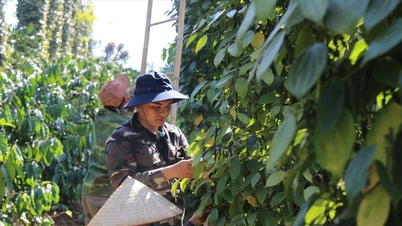


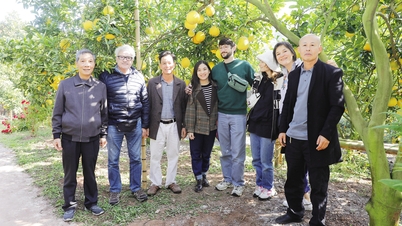



















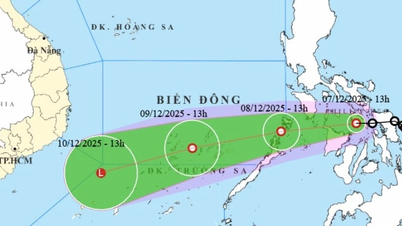



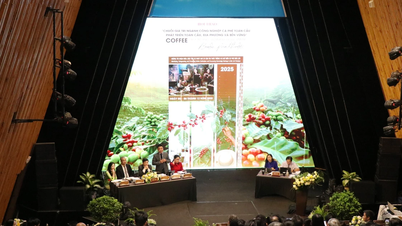







































































Comment (0)